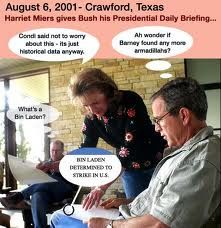Fox News is half-right about Jon Stewart: How the brilliant satirist of the Bush years has been undone by his BFF in the White House
by Andrew O’Hehir, Salon
Thursday, Aug 6, 2015 07:00 PM EST
Stewart gradually evolved into the principal media mouthpiece or channel – the two things are not quite the same – for what might be called common-sense liberalism, the self-appointed pathway of Enlightenment reason. He has called himself a moderate and admitted voting for George H.W. Bush in 1988, and while you shouldn’t hold a person’s youthful indiscretions against him, I think that fact is important to the Stewart brand. He is disappointed, disillusioned and sometimes outraged by the evil and idiocy found on the Republican right and the thoroughgoing corruption of the political system. But he is not unreasonable, not an ideologue, not a “leftist.” He believes in comity and compromise, and yearns for the kinder, gentler days when a 25-year-old Jewish standup comedian in New York could vote for Ronald Reagan’s vice president without consciously self-identifying with a party of bigotry, warmongering and paranoia.
Was that a low blow? I’m honestly not sure. I come to bury Jon Stewart, not to praise him – except, wait, maybe it’s the other way around. First of all, let’s note that Stewart isn’t dead, so I’m under no obligation to say nice stuff about him just because he is leaving a television program after 16 years. Furthermore, there’s a reason most people get that Shakespeare quotation backwards: The speaker of that famous monologue, Marc Antony, repeatedly challenges his audience to perceive that what he says is not what he means: “Brutus is an honorable man,” and all that. He is using irony, in its old-fashioned Socratic sense (not the debased modern sense of easy mockery, or just a bad attitude), which is a mode that Jon Stewart has never mastered and largely avoids.
Stephen Colbert’s long-running satirical portrayal of a jingoistic Fox-style commentator, first on Stewart’s show and then on his own, had a random, hit-and-miss quality and often descended to cheap gags. (On balance, Stewart probably provides more laffs per minute.) But in his best moments, Colbert has employed the ironic mode to reality-altering effect, and never more so than in his infamous performance at the White House Correspondents’ Dinner in 2006, when he mocked the empty, photo-op presidency of George W. Bush to the president’s face and derided the Washington press corps for its stenographic compliance: “Over the last five years you people were so good, over tax cuts, WMD intelligence, the effect of global warming. We Americans didn’t want to know, and you had the courtesy not to try to find out.”
Stewart would make the same joke on his show, pretty much, but he would immediately walk it back to the mode of earnestness and be super clear about what he meant: CNN et al. had behaved like a bag of dicks and that was really a shame. Colbert, on the other hand, vividly demonstrated Socrates’ principle that the destabilizing and disorienting effect of irony depends upon the “aneiron,” the person who doesn’t get the joke. In this case, everyone at that dinner understood that Colbert meant the opposite of what he said, which is why none of them were laughing. What they had not understood, because it seemed inconceivable, was that a TV comic’s joke persona contained a radical critique of the nature of politics and the news media, and that Colbert was not going to observe the cozy, chummy conventions of a Beltway event whose sole purpose is to make the subservient Washington press corps feel like special snowflakes.
Stewart is not comfortable in that mode, and has never pursued that kind of confrontation. His on-air rhetoric slid perceptibly leftward over the course of the Bush administration, as he vigorously went after the bankers, the Iraq war apologists and the torture defenders. But even after his show hit a demographic sweet spot somewhere around the Democratic center-left – the position of the 2008 Obama voter – he struggled to avoid the impression of pure partisanship. As recently as 2010, although it feels like a lifetime ago, Stewart was calling for an end to partisan vitriol with his Rally to Restore Sanity on the National Mall. Even he must have thought the immediate aftermath was pretty funny: A few days later, Tea Party Republicans swept to victory from coast to coast in the midterm election that pretty much paralyzed Obama’s presidency. So that was the end of that.
Salon columnist Bill Curry has suggested that Stewart belongs to the Pragmatist tradition of Oliver Wendell Holmes, and seeks to draw a distinction between Stewart’s faith in reason and usefulness and Obama’s penchant for back-room political compromise. It’s a fascinating argument, but that might be an overly fine way to parse a TV comedian – often a very funny one, with a delightful ability to mock others and mock himself in the same moment – who has insisted on walking the narrow plank of reasonableness in times of rampant unreason, and now finds himself alone at the end of the plank above an ocean of hungry sharks.
I understand why it bothers Stewart that Fox News is depicting him, during his last days on the air, as a shameless Obama sock-puppet. He feels that it’s not quite fair and he feels more than a little vulnerable on that front. Both perceptions are justified. (Stewart himself said on the air that he has been much harder on Obama than Fox ever was on Bush, which is what you might call an invidious comparison.) But Stewart’s role as Obama’s stealth strategic defender, who has criticized the administration on several key issues while consistently seeking to channel progressive anger and disappointment toward the crazy and intransigent opposition, wouldn’t bother me at all if I felt convinced that it reflected underlying convictions. (I am not counting the nonideological relativism that drives the 21st-century Democratic Party as a conviction.)
As with Stewart’s pal in the White House, that question has only grown murkier over the years. All the contradictions of political satire in the Obama years would exhaust anyone, but Stewart’s performance of sincerity, the factor that gave his comedy its force and also limited its scope, has pretty much come unraveled. You can see that in his recent interview with Tom Cruise, which barely differed from a boot-licking celebrity appearance with Oprah or Ellen, and in which (as filmmaker Alex Gibney has observed), Stewart never mentioned Cruise’s central role in the noxious Church of Scientology. You see it in Stewart’s increasingly tedious feud with Bill O’Reilly, where they play the roles of media commentators with profound ideological differences and pretend to dislike each other, coming dangerously close to the kind of masturbatory media-insider banter Colbert mocked so mercilessly a decade ago.
Jon Stewart has had a great run as the host of a comedy show, the kind of longevity that has become nearly impossible in American pop culture. In political terms, his mission has either been fulfilled – if he was really sent here by Putin to bewilder us and destroy democracy – or was never possible in the first place. As I said earlier, we want to be permanently in on the joke and we want to believe in something. But what if the things we want to believe in are just a joke?
I think I used to have a purpose, Then again, that might have been a dream
I just do what I’m been told
I really don’t want them to come around, oh no
Sometimes I think I’m happy here
Sometimes, yet I still pretend
But I can tell you exactly how it will end
Well I’ll hide it behind something, They won’t look behind
I wish this could’ve been any other way, But I just don’t know, I don’t know
What else I can do?
You may think this is the future, you may think that it’s the end.
I won’t give up the struggle.
Some times, sometimes you take a stand.
Every day is exactly the same. Every day is exactly the same. There is no love here and there is no pain. Every day is exactly the same.
Future Directions
Jon Stewart is not dying. The Daily Show is not dying. The Sausage Grinder of Snark is not dying and neither am I (well, in the normal course of things. I’m 120+ years old!).
I’ve been a huge supporter of Larry Wilmore ever since he took over from Stephen. His Nightly Show has gotten better and better since it’s found its format (Daily Show + panel instead of interview, duh). That will not change.
I’m totally willing to get behind Trevor and expect to feature his efforts at the helm as well. I’ve watched a number of his comedy sets and he really is as bright and funny as Jon thinks he is. He’s more international than anyone since Oliver so he gets the class thing and he’s also an expert on racism (South Africa?).
However.
While Jon is retiring to raise bees in Sussex, Stephen is taking up the sword again on Late Night. I will certainly give him a fair shot too.
So while it’s easy enough to track the guests (which I intend to do) I have a serious viewing overlap at 11:35 and frankly the repeats of Larry are easier to access (1:30 am ET) or tape (30 minutes) than Late Night (1 hour and who knows?).
Well, it’s something to think about instead of silently weeping.



Recent Comments